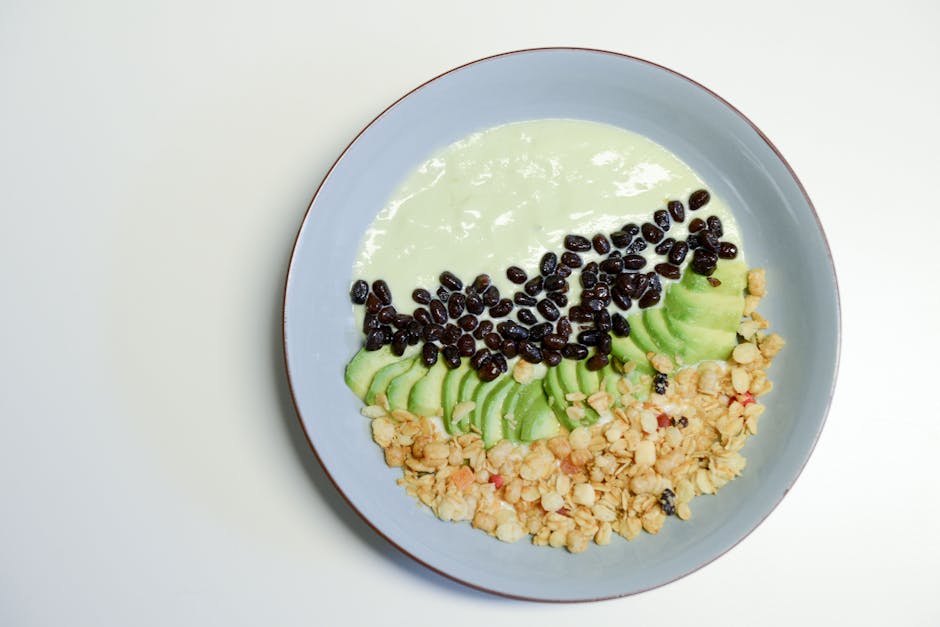The Importance of a Balanced Diet for Dogs
Our furry four-legged friends bring a sense of joy, companionship, and love into our lives. As responsible pet owners, it is our duty to ensure their well-being and happiness. One of the most crucial aspects of caring for a dog is providing them with a balanced and nutritious diet. Just like humans, dogs require a proper balance of essential nutrients to thrive and lead a healthy life. In this article, we will delve into the significance of a balanced diet for dogs, exploring the key components, benefits, and considerations for ensuring optimal nutrition for our beloved canine companions.
The Basics of Canine Nutrition

Before we delve into the importance of a balanced diet for dogs, it’s essential to understand the basics of canine nutrition. Dogs are omnivores, meaning they can consume a variety of foods, including meat, vegetables, and grains. However, their dietary requirements differ from humans, and certain nutrients are crucial for their overall health and well-being.
Dogs require a diet rich in protein, which is essential for muscle growth, repair, and maintenance. Proteins are made up of amino acids, which are the building blocks of muscles, tissues, and organs. In addition to protein, dogs need fats for energy, as well as essential fatty acids like omega-3 and omega-6, which play a vital role in maintaining healthy skin and coat.
Carbohydrates are another important component of a dog’s diet, providing a source of energy and fiber for digestion. While dogs do not have a strict requirement for carbohydrates, they can benefit from complex carbohydrates found in whole grains, fruits, and vegetables. Finally, vitamins and minerals are essential for various bodily functions, including immune system support, bone health, and overall well-being.
The Benefits of a Balanced Diet for Dogs

Providing your dog with a balanced diet offers a wide range of benefits that contribute to their overall health and longevity. Some of the key advantages of a balanced diet for dogs include:
1. Improved Digestive Health

A balanced diet that includes high-quality proteins, fiber, and probiotics can promote healthy digestion in dogs. Fiber helps regulate bowel movements and prevent constipation, while probiotics support the growth of beneficial gut bacteria, aiding in digestion and nutrient absorption.
2. Healthy Weight Management

Obesity is a common issue among dogs, leading to a variety of health problems such as diabetes, joint pain, and cardiovascular issues. A balanced diet that is portion-controlled and nutrient-dense can help dogs maintain a healthy weight and prevent obesity-related issues.
3. Enhanced Energy Levels
A well-balanced diet provides dogs with the energy they need to stay active, alert, and engaged. Nutrient-dense foods fuel their bodies and support their daily activities, whether it’s playing fetch in the backyard or going for a walk in the park.
4. Strong Immune System
Nutrient-rich foods play a crucial role in supporting a dog’s immune system, helping them fight off infections, diseases, and other health issues. Vitamins, minerals, and antioxidants found in a balanced diet boost immunity and reduce the risk of illnesses.
5. Healthy Skin and Coat
A balanced diet that includes essential fatty acids like omega-3 and omega-6 promotes healthy skin and a shiny coat in dogs. These fatty acids help reduce inflammation, itching, and dryness, keeping your dog’s skin and coat in optimal condition.
6. Better Dental Health
Proper nutrition plays a significant role in maintaining your dog’s dental health. Chewing on crunchy fruits and vegetables, along with dental chews, helps reduce plaque and tartar buildup, preventing gum disease and tooth decay.
Considerations for Choosing the Right Dog Food
When it comes to selecting the right food for your dog, there are several factors to consider to ensure they receive a balanced and nutritious diet. Here are some key considerations to keep in mind:
1. Life Stage
Dogs have different nutritional requirements based on their life stage, including puppies, adult dogs, and senior dogs. Make sure to choose a dog food that is appropriate for your dog’s age, size, and activity level to meet their specific needs.
2. Breed
Some dog breeds have specific dietary requirements based on their size, metabolism, and genetic predispositions. Large breeds, for example, may benefit from a diet formulated to support joint health and prevent obesity, while small breeds may require smaller kibble sizes for easier digestion.
3. Health Conditions
If your dog has any underlying health conditions such as allergies, digestive issues, or kidney disease, you may need to select a specialized diet that addresses their specific needs. Consult with your veterinarian to determine the best diet for managing your dog’s health condition.
4. Ingredients
Read the ingredient list on the dog food label carefully to ensure it contains high-quality, natural ingredients without artificial additives, fillers, or by-products. Look for whole proteins like chicken, beef, or fish as the first ingredient, and avoid foods with excessive amounts of grains, corn, or soy.
5. Feeding Schedule
Establish a regular feeding schedule for your dog to maintain consistency and prevent overfeeding. Most dogs thrive on a twice-daily feeding routine, while others may require smaller, more frequent meals. Monitor your dog’s weight, body condition, and energy levels to adjust their feeding schedule as needed.
6. Water Intake
Ensure your dog has access to fresh, clean water at all times to stay hydrated and support their overall health. Water plays a crucial role in digestion, nutrient absorption, and temperature regulation, making it essential for your dog’s well-being.
Common Misconceptions About Dog Nutrition
Despite the importance of a balanced diet for dogs, there are several misconceptions and myths surrounding dog nutrition. Let’s debunk some common myths and set the record straight:
1. Raw Diets are Always Better
While some dog owners advocate for raw diets as the best option for dogs, it’s essential to approach this feeding method with caution. Raw diets can pose health risks due to potential bacterial contamination and nutritional imbalances. Consult with a veterinarian before switching your dog to a raw diet to ensure it meets their nutritional needs.
2. Grain-Free Diets are Healthier
Contrary to popular belief, grains are not inherently bad for dogs and can be a valuable source of carbohydrates, fiber, and nutrients. Grain-free diets have come under scrutiny in recent years due to the potential link to heart disease in dogs. Consult with a veterinarian to determine the best diet for your dog based on their individual needs.
3. Homemade Diets are Always Safe
While homemade diets can offer more control over ingredients and quality, they can also be challenging to formulate correctly. Without proper guidance from a veterinary nutritionist, homemade diets may lack essential nutrients or contain harmful ingredients. Consult with a professional to create a balanced homemade diet for your dog.
Conclusion
To wrap things up, providing your dog with a balanced diet is essential for their overall health, well-being, and longevity. By ensuring they receive the right balance of proteins, fats, carbohydrates, vitamins, and minerals, you can help your dog thrive and lead a happy life. Remember to consider their age, breed, health condition, and dietary preferences when selecting the best food for your furry friend. Consult with your veterinarian for personalized recommendations and guidance on creating a nutritionally complete diet for your dog. Your dog’s health is in your hands, so make the right choices for their nutrition and well-being.




